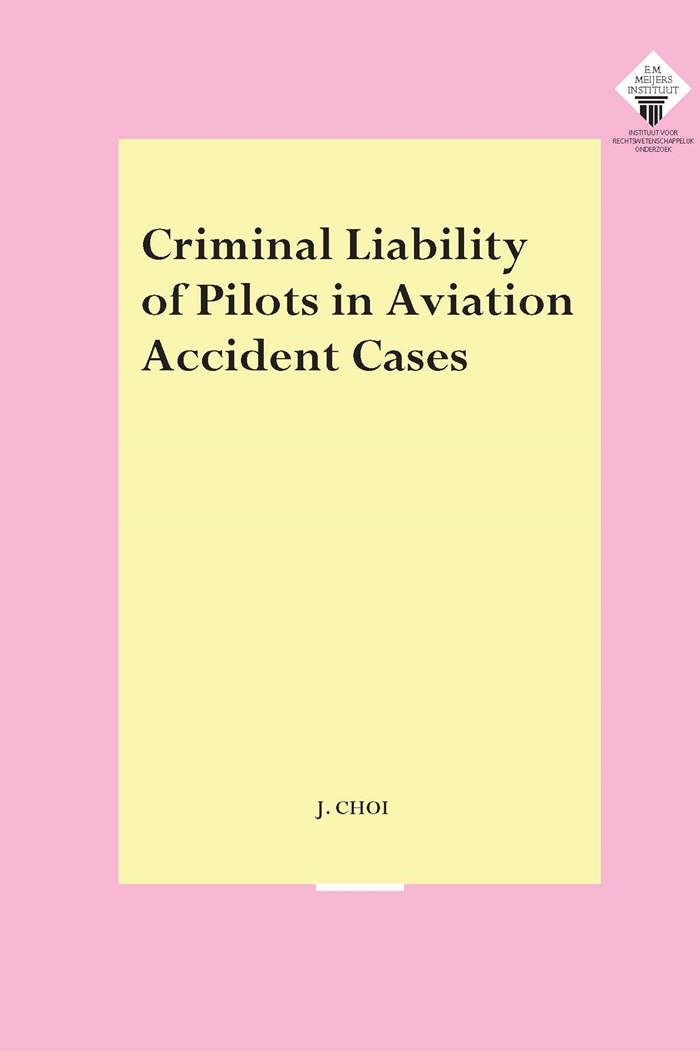
In the high-stakes world of international civil aviation, few professionals operate under more intense scrutiny than pilots. As the frontline actors responsible for flight safety in a highly complex and risk-sensitive environment, pilots are not only technical experts but also legal subjects. When accidents occur, their decisions are among the first to be examined by technical investigators, prosecutors, and the public alike. This intersection of operational duty, regulatory oversight, and personal liability forms the heart of Jinyoung Choi’s dissertation. This study provides a legal analysis of pilot liability through the paradigms of Safety, Transparency, and Legal Certainty, and examines how these often-conflicting principles shape the evolving domain of aviation criminal law, a complex and specialised regulatory domain at the crossroads of international aviation standards and national criminal enforcement. The tension between international air law and domestic criminal law creates significant ambiguity, particularly when enforcement obligations clash with safety-based, blame-free investigative cultures. A key example of this legal friction is found in the relationship between Articles 12 and 26 of the Chicago Convention (1944), which is acknowledged as the constitution of air law. Article 12 mandates prosecution for aviation rule violations, while Article 26 focuses on technical investigations to prevent recurrence without assigning fault for safety. ICAO Annex 13, an important technical document listing technical specifications on accident investigation, which implements Article 26, prioritises horizontal transparency (within the aviation sector), but limits vertical transparency (toward the public and judiciary) by protecting sensitive data collected from technical investigations from apportion of blame. The issue is complex especially given that Annex 13 does not explicitly prohibit prosecution. The law becomes unforeseeable, which is against legal certainty. A comparative analysis of jurisdictions like the US, UK, and South Korea shows high compliance with ICAO standards as part of international air law technical instruments, but national variations in how criminal liability is applied. In these jurisdictions, prosecution often relies on general criminal law, triggered by serious harm, while administrative or civil sanctions are more common in less severe cases. Lack of adjudication makes the consequences still unforeseeable for pilots. To address the growing legal uncertainty for pilots, the dissertation introduces the concept of collective-subjective foreseeability. Traditionally, foreseeability in criminal law is assessed objectively, based on what a ‘reasonable person’ could have foreseen. However, pilots occupy a specialised, high-stakes role marked by discretion, standardised technical training, and adherence to standard operating procedures. Their foreseeability should therefore be judged not just subjectively, but collectively, through the lens of shared professional standards and regulatory expectations within the pilot community. Pilots are not isolated actors; their actions are shaped by various factors, including domestic and organisational culture, training, and international norms. By incorporating this collective-subjective perspective, legal certainty can be enhanced without undermining accountability. This proposal is supported by a survey of over 100 pilots, which revealed a broad operational consensus but diverging legal interpretations. In conclusion, while full legal clarity may be unattainable in a transnational and dynamic field like aviation, normative flexibility, collective understanding, and international coordination can help ensure that criminal liability frameworks remain fair, predictable, and just —both for pilots and for the societies they serve. Choi defended her dissertation at Leiden University, April 29th 2025.
Promotor: prof. dr. Pablo Mendes de Leon; co-promotor: dr. Pinar Ölçer.
Jinyoung Choi
Criminal Liability of Pilots in Aviation Accident Cases
Meijers-reeks 439, ISBN 978 94 6473 777 6
Commerciële uitgave (Wolters Kluwer) wordt in de loop van dit jaar verwacht.

